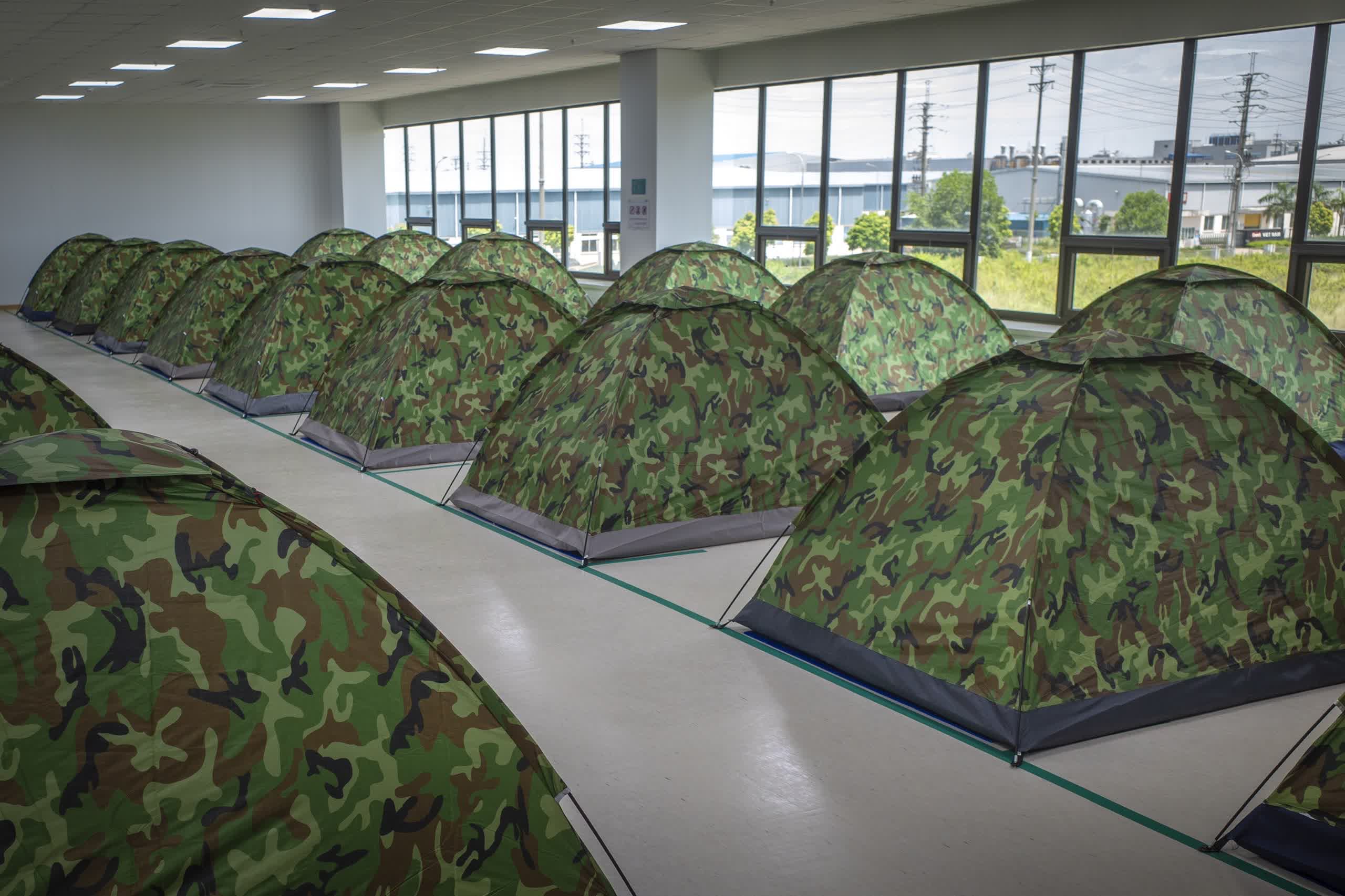Companies shifting production away from China are facing major challenges in Vietnam
In brief: For the last few years, several tech companies have been on a quest to reduce their reliance on Mainland china to manufacture their products. Suppliers of Apple, Google, Amazon, Dell, and Microsoft, have made some progress in expanding to neighboring Asian countries. Still, new Covid-19 outbreaks and a lack of local engineering talent are slowing downwardly this transition.
In 2022, during the merchandise war between People's republic of china and the US, at that place were numerous reports that tech giants were exploring options to move away from the heat and all-time protect their financial interests. Their main goal was (and all the same is) to shift equally much of their manufacturing every bit possible away from China and into countries similar India, Vietnam, and Mexico, where labor is less expensive, and the resulting products aren't subject area to inflated import taxes.
This line of thinking is also endorsed by manufacturers like Foxconn, which believes China can no longer exist "the world's factory." However, the procedure has been far from a smooth one, with companies like Amazon and Apple quickly running into bug like unfair pay and child labor, on top of a series of political barriers and supply chain bottlenecks that aren't easy to overcome.
Then the pandemic striking, making the perils of the tech manufacture'due south heavy reliance on People's republic of china all the more obvious. More than than a yr later, new Covid-nineteen outbreaks are notwithstanding affecting the power of tech companies and their key suppliers to shift production to places like Vietnam and Republic of india.
According to Nikkei, Apple volition at present start making AirPods in China instead of Vietnam. At the aforementioned time, Google and Amazon volition do the same with the mass product of the Pixel half dozen smartphone and various smart home devices, despite the higher toll of Chinese labor. Other companies may also follow in their footsteps while they reassess the risks of dealing with strict border controls and local lockdowns, too as the possibility that some suppliers might use forced labor.
Chief among their concerns is that developing new supply chains and edifice more production chapters in India and Vietnam requires applied science talent, which is difficult to find locally and even harder to bring in due to travel restrictions. As a result, companies can only manufacture the same products they make elsewhere, making these countries less competitive. For instance, Apple has had to postpone plans to move some MacBook and iPad product to Vietnam, which is likely true for whatever other visitor planning to make tablets and laptops in the land.
IDC analysts believe officials will eventually ease the restrictions as time goes on, and the process started in 2022 will continue. In the meantime, it looks like Prc will be able to continue its title as the "earth's manufactory" for some time yet.
Source: https://www.techspot.com/news/90866-companies-shifting-production-away-china-face-major-challenges.html
Posted by: alfarothelover.blogspot.com



0 Response to "Companies shifting production away from China are facing major challenges in Vietnam"
Post a Comment